Discover 22 Leading Microservices Experts
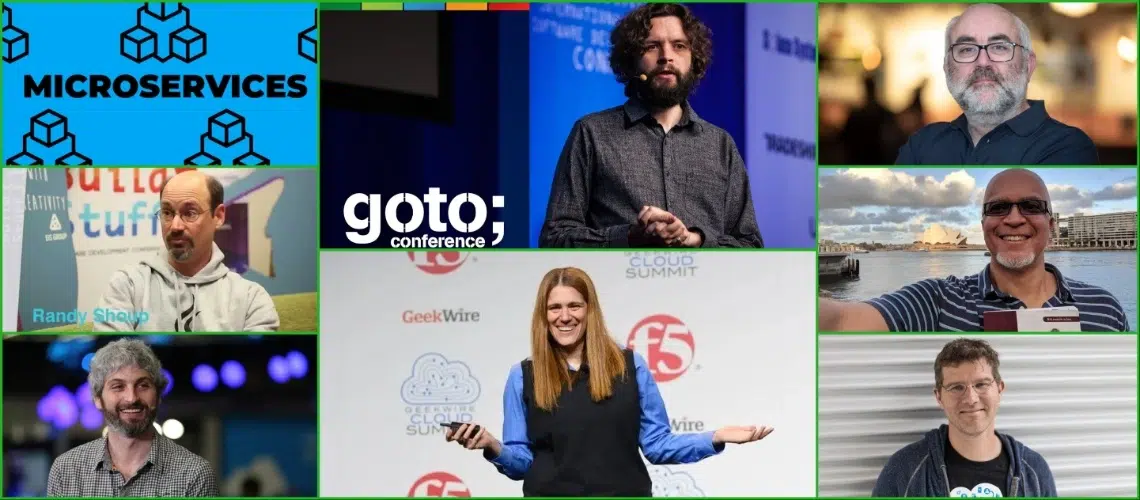
Microservices have reshaped the software architecture landscape – fueling scalability, agility, and resilience for everything from startups to tech giants.
Behind this shift is a community of pioneering experts who’ve authored foundational books, launched groundbreaking tools, and led some of the most influential cloud-native transformations in the world. This curated list features the architects, educators, open-source champions, and platform builders who continue to define how microservices are designed, deployed, and scaled.
- Sam Newman
- Udi Dahan
- Eberhard Wolff
- Chris Richardson
- Adrian Cockcroft
- Martin Fowler
- James Lewis
- Jonas Bonér
- Randy Shoup
- Kelsey Hightower
- Werner Vogels
- Brendan Burns
- Bernd Rücker
- Josh Long
- Matt Klein
- Abby Fuller
- William Morgan
- Idit Levine
- Christian Posta
- Abid Anjum
- Holly Cummins
- Ronnie Mitra
Now, let’s delve into each expert’s profile and see what makes them notable in the Microservices landscape:
Sam Newman

Nationality: British
Sam is an independent technology consultant specializing in microservices architecture.
Based in the UK (and formerly at ThoughtWorks), he is the author of the influential books Building Microservices and Monolith to Microservices, which have become go-to guides for engineers breaking apart monolithic applications. Newman has helped numerous organizations transition to microservices, focusing on principles like bounded contexts and continuous delivery to ensure success. He remains an active speaker at conferences (e.g. GOTO, QCon) and a blogger, sharing practical insights from the field.
Sam Newman is widely credited with popularizing microservices in the mid-2010s and continues to advise teams worldwide on cloud-native system design and architecture.
- Linkedin: Sam Newman
- X (Twitter): @samnewman
- Github: snewman
- Website/Blog: samnewman.io
Udi Dahan
Nationality: Israeli
Udi is a globally recognized expert in distributed systems architecture, particularly in the realm of messaging, SOA, and microservices in the Microsoft ecosystem. He is the founder of Particular Software, the company behind NServiceBus, which has been a foundational framework for building service-oriented and message-driven systems in .NET for over a decade.
Udi’s approaches (like saga patterns for long-running workflows and reliable messaging for integration) deeply influenced early microservices adoption before “microservices” was even a buzzword. He’s a sought-after consultant and trainer – his Advanced Distributed Systems Design course and talks at conferences like NDC are packed with hard-earned wisdom on building scalable, maintainable systems. Udi often stresses designing around business capabilities and explicit boundaries, and he cautions against naive use of new technologies without understanding fundamentals (e.g., “don’t use microservices as an excuse to build a distributed big ball of mud”).
His thought leadership has guided many organizations in transitioning from tightly-coupled architectures to more modular, message-driven microservices that can evolve independently.
- Linkedin: Udi Dahan
- X (Twitter): @UdiDahan
- Website/Blog: udidahan.com
Eberhard Wolff
Nationality: German
Eberhard is a veteran software architect, consultant, and author who has been instrumental in promoting microservices in Europe and beyond. He is a Fellow at INNOQ in Germany and has over 20 years of experience in architecture and agile methods.
Eberhard has written several books on microservices, including Microservices: Flexible Software Architecture (2016) and Microservices Praktyczny przewodnik (Practical Guide, in German). He often emphasizes the importance of organizational structure and continuous delivery in the success of microservices, echoing Conway’s Law and the need for DevOps culture. As a consultant, he has advised many companies in transitioning to microservices, focusing on pain points like data consistency, testing, and deployment automation.
Eberhard is also a frequent speaker at international conferences and known for his clear, example-driven style of teaching. By sharing both pattern catalogs and cautionary tales, he has helped teams worldwide navigate the microservices journey while avoiding common traps (like creating distributed monoliths).
- Linkedin: Eberhard Wolff
- X (Twitter): @ewolff
- Github: ewolff
- Website/Blog: ewolff.com
Chris Richardson

Nationality: American
Chris is a veteran software architect and a Java Champion, best known for his contributions to microservice design patterns. He created Microservices.io, a comprehensive catalog of microservice patterns, and authored the book Microservices Patterns (Manning, 2018).
Richardson is also the founder of Eventuate.io, a platform providing tools for event sourcing and saga orchestration in microservices. A former engineer at SpringSource, he has long been an advocate of breaking systems into loosely coupled services (he even built an early PaaS company that presaged today’s cloud platforms). Chris frequently consults and teaches workshops on microservices, helping enterprises adopt patterns like CQRS, saga transactions, and serverless where appropriate.
Through his pattern language, blog, and training courses, he has guided many in the industry toward effective microservice architectures.
- Linkedin: Chris Richardson
- X (Twitter): @crichardson
- Github: cer
- Website/Blog: chrisrichardson.net
Adrian Cockcroft
Nationality: British
Adrian is renowned for pioneering microservices at web scale. As Director of Architecture at Netflix in the early 2010s, he led Netflix’s famed migration from a monolith to a cloud-based microservices ecosystem, helping to develop key open-source tools like Hystrix for resilience.
He later served as VP of Cloud Architecture at AWS, where he advocated microservices and cloud-native practices for AWS customers. Now a technology strategy advisor (and Partner at OrionX.net), Cockcroft remains an active voice in the community. He frequently speaks about topics such as team autonomy (“two-pizza teams”) and DevOps (“you build it, you run it”), drawing on his experience at Netflix and Amazon.
Adrian’s work demonstrated the viability of microservices for high-volume systems and influenced an entire generation of architecture for scalability and resilience.
- Linkedin: Adrian Cockcroft
- X (Twitter): @adrianco
- Github: adrianco
Martin Fowler
Microservices are a way of structuring a system as a set of small, independently deployable services, organized around business capabilities.
Nationality: British
Martin is a legendary software architect and author who helped introduce microservices to the mainstream tech community. As Chief Scientist at ThoughtWorks, he co-authored the seminal 2014 article “Microservices” with James Lewis, which defined the term and principles of the microservice style.
Martin Fowler has written extensively on software architecture (his books include Patterns of Enterprise Application Architecture and Refactoring), and his blog posts often shape industry best practices. While he doesn’t code on open-source projects, his thought leadership has been crucial – he distilled the key characteristics of microservices (independent deployability, business-capability orientation, smart endpoints/dumb pipes, etc.) and cautioned against monolith pitfalls. In recent years Fowler continues to mentor architects and publish insights (e.g. on evolutionary architecture and monolith/modularity balance).
He remains a highly respected authority on software design, and many consider his early endorsement as pivotal to microservices’ popularity.
- Linkedin: Martin Fowler
- X (Twitter): @martinfowler
- Website/Blog: martinfowler.com
James Lewis
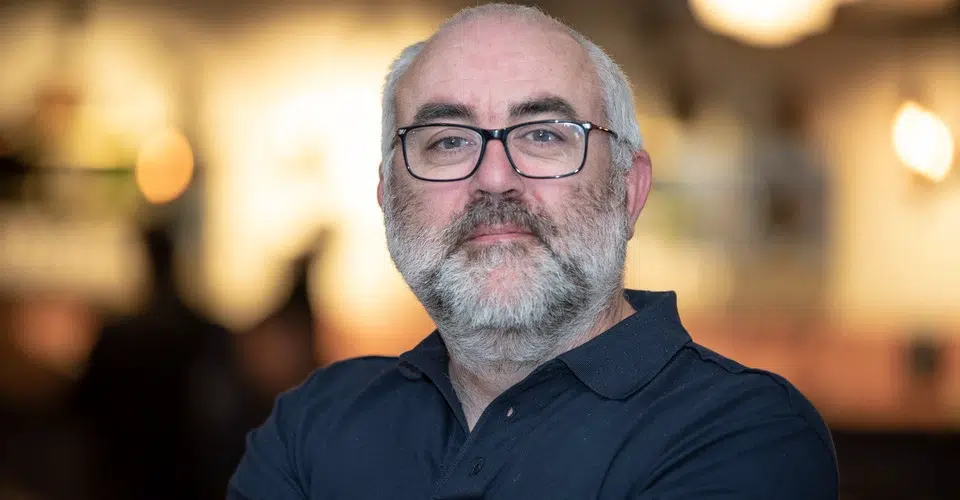
Nationality: British
James is a Software Architect and Director at ThoughtWorks who is widely recognized as a co-originator of the microservices concept. He was co-author, along with Martin Fowler, of the influential March 2014 article that first articulated microservice architecture principles.
James has over 20 years of experience and has built numerous systems using microservices. At ThoughtWorks, he’s helped enterprise clients break apart monoliths and adopt modern engineering practices (continuous delivery, infrastructure as code) to support independent services. James Lewis is also a frequent conference speaker – in talks like “The Magic of Small Things – 10 Years of Microservices”, he reflects on lessons learned and evolving best practices.
He emphasizes that microservices are as much about organization and culture as technology. By sharing both success stories and pitfalls, James has been a key figure in guiding the industry in when and how to use microservices effectively.
- Linkedin: James Lewis
- Github: boicy
- Website/Blog: bovon.org
Jonas Boner
Nationality: Swedish
Jonas is a pioneer in building reactive, distributed systems on the JVM and a leading figure in microservices for the Scala/Java community. He is the creator of the Akka framework – a toolkit implementing the Actor Model that simplifies concurrency and scalability, used widely in microservices for building resilient, stateful services.
Jonas co-founded Lightbend (formerly Typesafe) and served as its CTO, where he oversaw Akka’s development along with frameworks like Play and Lagom. (As of 2024, Lightbend’s Akka business has evolved into Akka Platform by Jonas’s team.) He also co-authored the “Reactive Manifesto”, which advocated for systems that are responsive, resilient, elastic, and message-driven – traits that heavily influenced microservice design. Jonas remains very active as an inventor and CTO, recently working on cloud offerings that bring Akka’s capabilities to serverless environments.
His contributions (Akka, in particular) have provided critical building blocks for high-throughput microservices in production.
- Linkedin: Jonas Bonér
- X (Twitter): @jboner
- Github: jboner
- Website/Blog: jonasboner.com
Randy Shoup
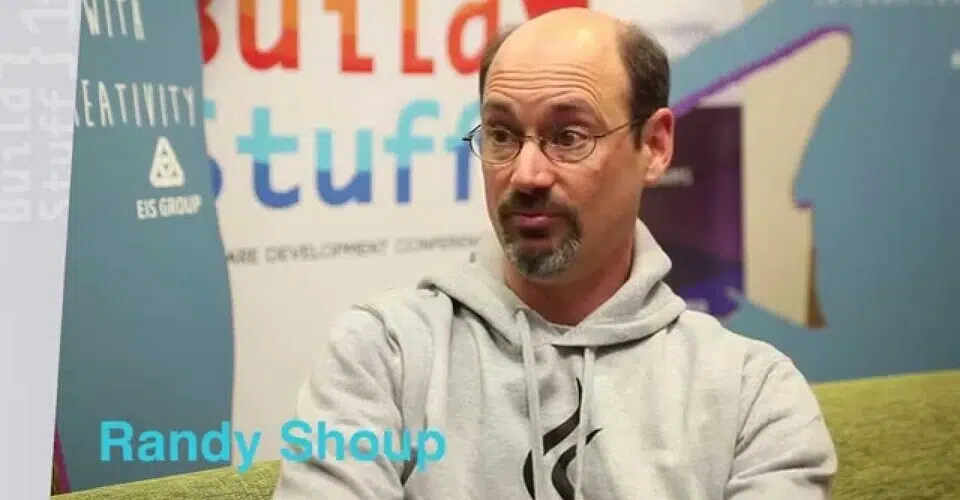
Nationality: American
Randy is a veteran engineering leader with deep experience running microservices at scale. He is currently VP Engineering and Chief Architect at eBay, where he is steering the ongoing evolution of eBay’s large-scale architecture.
Randy’s background includes pivotal roles at Google (AdWords infrastructure) and Stitch Fix, as well as a previous stint at eBay in the 2000s – giving him over two decades working with distributed systems. He is known for advocating for simpler architectures: he often quips that “for 99% of use cases, a well-structured monolith is fine”, highlighting that microservices should be used judiciously. Nonetheless, he has led some of the biggest microservices implementations and often shares insights on topics like team ownership, service boundaries, and how to incrementally decompose monoliths.
Randy is a frequent speaker (CraftConf, InfoQ) and is valued for his pragmatic, experience-based perspective on when and how to leverage microservices in large organizations.
- Linkedin: Randy Shoup
- X (Twitter): @randyshoup
Kelsey Hightower
Kubernetes is a platform for building platforms. It’s a better place to start, not the endgame.
Nationality: American
Kelsey is one of the most recognizable figures in the cloud-native ecosystem and a key advocate for microservices and Kubernetes. Until his retirement in 2023, Hightower was a Distinguished Engineer at Google Cloud, where he helped launch and evangelize Kubernetes (the container orchestration platform that underpins many microservice deployments).
He co-authored Kubernetes: Up & Running and became famous for his live demos – e.g. deploying Kubernetes “the hard way” without scripts to show how things work under the hood. Kelsey’s philosophy often emphasizes simplicity and reducing abstraction when learning new tech. In June 2023, he announced that he was stepping away from his role at Google, but he remains active as a speaker, open-source contributor, and mentor.
Hightower’s contributions to Kubernetes and his community leadership (he co-founded KubeCon) have been instrumental in making microservices and containerization accessible to a broad audience of developers.
- Linkedin: Kelsey Hightower
- X (Twitter): @kelseyhightower
- Github: kelseyhightower
Werner Vogels
Nationality: Dutch
Dr. Werner Vogels is the Chief Technology Officer of Amazon.com and one of the driving forces behind Amazon’s early adoption of service-oriented and microservice architectures. Vogels joined Amazon in 2004 and was a key proponent of the “two-pizza team” approach – structuring small, autonomous teams for each service – which allowed Amazon’s architecture to scale in a decoupled fashion.
He famously championed the idea “you build it, you run it”, meaning teams own the operational responsibility for their services. As CTO, Werner Vogels has overseen the development of AWS, which provides much of the infrastructure that organizations use to run microservices today. He frequently shares Amazon’s internal learnings in his blog All Things Distributed and in AWS re:Invent keynotes, covering topics from managing distributed data (he co-authored the Dynamo paper) to building resilient systems.
Werner’s vision and advocacy have had a profound influence on the widespread industry shift to microservices and cloud-native architectures.
- Linkedin: Werner Vogels
- X (Twitter): @Werner
Brendan Burns
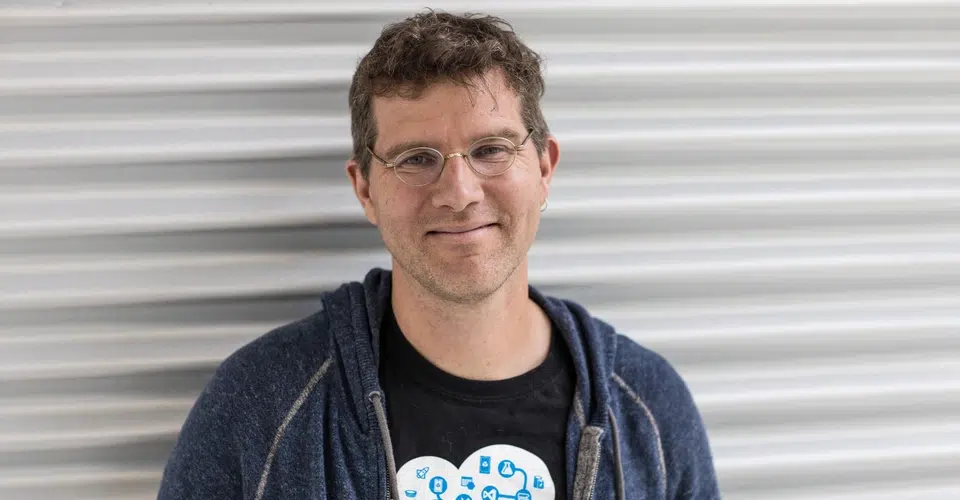
Nationality: American
Brendan is a Corporate Vice President at Microsoft Azure and a co-founder of the Kubernetes project. Brendan played a pivotal role in the creation of Kubernetes during his time at Google in 2014, translating Google’s internal container orchestration concepts (like Borg) into an open-source system that developers everywhere now use to run microservices.
At Microsoft, he leads teams focused on cloud-native open source and DevOps tools, bridging the gap between cutting-edge open-source tech and enterprise Azure services. Burns also wrote the book Designing Distributed Systems (2018), which presents patterns and blueprints for building microservices and cloud applications. He remains an active contributor to the CNCF (Cloud Native Computing Foundation) and frequently speaks about topics such as the future of cloud, containerization, and even the intersection of AI with cloud.
Brendan’s work has been foundational in providing the orchestration layer that enables microservices to thrive in production at scale.
- Linkedin: Brendan Burns
- X (Twitter): @brendandburns
- Github: brendandburns
Bernd Rücker
Nationality: German
Bernd is the co-founder and Chief Technologist of Camunda, an open-source workflow and process automation platform widely used alongside microservices. Bernd is a strong proponent of blending workflow engines with microservices to manage long-running business processes and ensure end-to-end visibility.
He has over 15 years of experience in the workflow/BPM space and has helped modernize it for the cloud-native era with the development of Camunda 8 (powered by the Zeebe engine). Bernd authored Practical Process Automation (2021), which illustrates how to implement sagas, workflow orchestration, and business transactions in a microservices architecture. He frequently writes and speaks about the interplay between orchestration vs. choreography in microservices – advocating that sometimes explicit orchestration of services can simplify complex integrations.
Through countless customer projects and community discussions, Bernd Rücker has become an authority on achieving robust, reliable microservices that still meet critical business process requirements.
- Linkedin: Bernd Rücker
- X (Twitter): @berndruecker
- Github: berndruecker
- Website/Blog: berndruecker.io
Josh Long
Nationality: American
Josh is a Spring Developer Advocate at VMware and one of the most visible educators in the microservices world for Java developers. As the first Spring Developer Advocate (since 2010), Josh has traveled the globe to spread knowledge about building cloud-native applications with Spring Boot, Spring Cloud, and the Spring ecosystem.
He’s a Java Champion and the author of multiple books, including Cloud Native Java (2017) and Reactive Spring. Josh is affectionately known by his tagline “Make JAR, not WAR”, reflecting Spring Boot’s simplicity for microservices packaging. He produces the “Bootiful Podcast” and streams and videos in which he live-codes microservices, showing how to integrate services with Netflix OSS components or how to deploy to Kubernetes. His work has been pivotal in bringing enterprise Java developers up to speed on microservices and modern dev practices.
Through hundreds of talks and even more blog posts and example projects, Josh Long has helped demystify microservices on the JVM, demonstrating how to build reliable, scalable services with Spring’s powerful abstractions.
- Linkedin: Josh Long
- X (Twitter): @starbuxman
- Github: joshlong
- Website/Blog: joshlong.com
Matt Klein
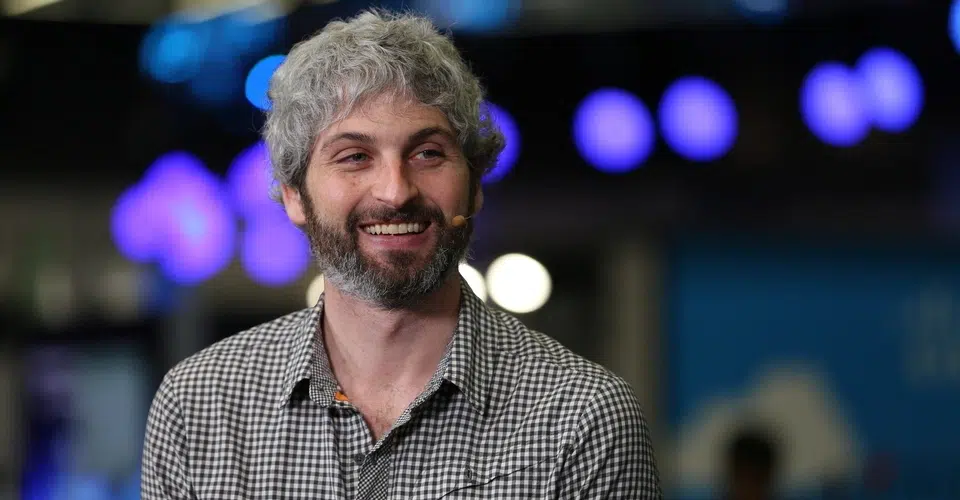
Nationality: American
Matt is the creator of Envoy proxy, a high-performance, service-mesh data plane used in countless microservice deployments (including by AWS, Google, and Apple). Matt developed Envoy while at Lyft to help solve issues of service communication, resiliency, and observability in a complex microservices environment.
Envoy’s success led to the rise of service meshes like Istio (which use Envoy under the hood). Matt Klein has been a prominent leader in the service mesh community, driving Envoy to become a graduated CNCF project and fostering a vibrant contributor base. In 2023, he co-founded a startup (Bitdrift) and currently serves as its CTO, focusing on mobile observability (while continuing to guide Envoy’s roadmap). Matt is an active open-source maintainer and often speaks about the practical realities of operating microservices (he’s known for advocating incremental adoption of mesh tech and avoiding over-hype).
His work on Envoy has provided a critical building block for traffic management in microservices architectures worldwide.
- Linkedin: Matt Klein
- X (Twitter): @mattklein123
- Github: mattklein123
- Website/Blog: mattklein123.dev
Abby Fuller
Nationality: American
Abby is a Principal Technologist at AWS who has been a strong advocate for containers, DevOps, and microservices in the Amazon cloud ecosystem. She gained prominence for her early work evangelizing Docker on AWS and has since become a go-to voice for best practices on AWS container services like ECS, EKS, and AWS Fargate.
Abby frequently speaks at conferences where she shares stories and tips on deploying at scale, from CI/CD pipelines to monitoring and security. Within AWS, she has worked on teams for EC2 and related services. Abby’s superpower is communication – she’s known for making complex infrastructure topics accessible with humor and real-talk.
As an active community participant, Abby Fuller continues to influence and educate engineers on how to successfully adopt microservices and containers, while avoiding the common pitfalls.
- Linkedin: Abby Fuller
- X (Twitter): @abbyfuller
- Github: abby-fuller
William Morgan
Nationality: American
William is the CEO of Buoyant and one of the originators of the service mesh pattern for microservices. Buoyant (founded by Morgan and colleague Oliver Gould, both ex-Twitter engineers) created Linkerd, the first open-source service mesh, even before the term “service mesh” was coined.
Linkerd, now a CNCF graduated project, adds critical reliability, security, and observability features to microservice communication without developers needing to modify their code. Before Buoyant, William Morgan was an infrastructure engineering manager at Twitter, where he experienced the challenges of operating large microservices at scale – experiences that directly informed Linkerd’s development. Morgan is a prominent speaker in the cloud-native community, often discussing the evolution of service mesh technology and pushing for simpler, lighter solutions (Linkerd is known for its focus on simplicity and performance).
His work has been instrumental in helping companies adopt service mesh and improve the resilience of their microservices networks.
- Linkedin: William Morgan
- X (Twitter): @wm
Idit Levine
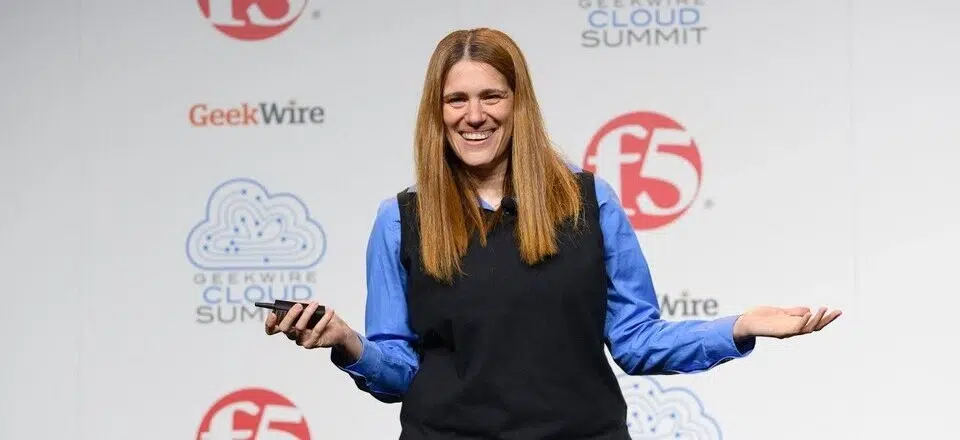
Nationality: Israeli
Idit is the founder and CEO of Solo.io, a company at the forefront of microservices API gateway and service mesh technology. Under her leadership, Solo.io has created popular open-source tools like Gloo Edge (API gateway) and Gloo Mesh (service mesh control plane) which simplify how companies connect, secure, and observe their microservices.
Idit has been a major contributor and thought leader in the Istio service mesh community; Solo.io is known for working closely on Istio enhancements (such as the ambient mesh initiative to streamline sidecars). With a background that spans both enterprise (she worked on virtualization and cloud products) and startup worlds, Levine combines deep technical expertise with business savvy. She frequently keynotes at KubeCon and other conferences, discussing the evolving landscape of microservices connectivity.
By focusing on developer experience and innovative features (like WebAssembly filters in Envoy), Idit Levine has positioned Solo.io as a key player helping enterprises embrace microservices infrastructure.
- Linkedin: Idit Levine
- X (Twitter): @idit_levine
- Github: ilevine
Christian Posta
Nationality: American
Christian is an expert in microservices, cloud-native architecture, and service mesh technologies. He is the VP, Global Field CTO at Solo.io, where he works with organizations to design and deploy modern microservice systems (often involving Istio service mesh and Envoy proxy).
Christian is the author of Istio in Action and has co-authored other books and numerous articles on microservices and infrastructure. Prior to Solo.io, he was a Chief Architect at Red Hat, contributing to open source projects in the Java and Kubernetes ecosystems. Posta is well known in the tech community for his blogging and speaking – he’s able to distill complex topics into accessible guidance for practitioners. He has spent time “in the trenches” as a developer and architect in various industries, which gives him a practical edge in advising on microservices transformation.
Through open-source contributions and community engagement, Christian Posta has helped many enterprises successfully adopt microservices, API gateways, and service mesh in a cloud-native way.
- Linkedin: Christian Posta
- X (Twitter): @christianposta
- Github: christian-posta
- Website/Blog: blog.christianposta.com
Abid Anjum
Nationality: Pakistani
Abid is a seasoned Senior Full Stack Developer and Architect with over 20 years of experience in designing enterprise-grade web and mobile applications.
His core expertise lies in Java and Spring Boot-based microservices, where he has successfully developed and deployed scalable architectures using tools like Docker, Kubernetes, Spring Cloud, Kafka, and REST APIs. In his article “Core Components of Microservices Architecture”, he outlines key principles such as service discovery, gateway patterns, and distributed logging that he applies in real-world implementations.
Currently based in Riyadh, Saudi Arabia, Abid continues to lead end-to-end development projects at Atheeb Intergraph Saudi Company (AISC), integrating microservices with cloud platforms like AWS and Azure.
- Linkedin: Abid Anjum
Holly Cummins
Nationality: British
Holly is a Senior Principal Software Engineer on the Red Hat Quarkus team and a Java Champion. She has rich experience in the enterprise Java world and has become a prominent voice on how to do microservices the right way, especially in resource-constrained or legacy environments.
Before joining Red Hat, Holly was the worldwide development lead in IBM’s Garage innovation program, where she helped large organizations modernize their applications with cloud and microservices. She is an award-winning speaker known for talks like “Does My Microservice Look Big in This?” which humorously addresses the bloat and complexity that teams sometimes add under the guise of “microservices”. Holly emphasizes efficiency and smart design—she’s spoken about how to make Java faster and leaner for cloud.
She is also passionate about green tech and sustainability in software. By combining deep technical knowledge with a focus on culture and simplicity, Holly Cummins provides a grounded, humane perspective on succeeding with microservices.
- Linkedin: Holly Cummins
- X (Twitter): @holly_cummins
- Github: holly-cummins
- Website/Blog: hollycummins.com
Ronnie Mitra
Nationality: British
Ronnie is a microservices and organizational-design practitioner best known as a co-author of Microservices: Up and Running (O’Reilly), which focuses on the concrete sequence of decisions teams face when they move from a single system to a service-based architecture. He has discussed the topic publicly in talks and interviews, often tying microservices success to clear ownership boundaries, API design, and the ability to change systems without constant cross-team coordination.
Professionally, Mitra has been listed as a technology leader at Publicis Sapient (London), which aligns with his emphasis on real enterprise transformation constraints rather than idealized greenfield designs.
- Linkedin: Ronnie Mitra
- X (Twitter): @mitraman
Wrap Up
These experts represent exceptional talent, making them extremely challenging to headhunt. However, there are thousands of other highly skilled IT professionals available to hire with our help. Contact us, and we will be happy to discuss your hiring needs.
Note: We’ve dedicated significant time and effort to creating and verifying this curated list of top talent. However, if you believe a correction or addition is needed, feel free to reach out. We’ll gladly review and update the page.
Frequently Asked Questions
Yes, microservices engineers are in strong demand. Companies continue moving from monolithic systems to microservices architectures to improve scalability, resilience, and deployment speed.
In the United States, developers specializing in microservices typically earn $110,000 to $150,000 per year. Hourly contract rates range from $60 to $120 depending on experience and project scope.
Microservices consultants help organizations design and implement distributed systems. Their work includes defining service boundaries, selecting communication protocols, ensuring API security, setting up CI/CD pipelines, and advising on container orchestration with tools like Kubernetes.
You can hire microservices developers through IT staffing agencies, specialized software consultancies, or freelance platforms like Toptal and Upwork. Many enterprises also build dedicated teams by hiring experienced backend and DevOps engineers.
Microservices are used by major technology companies such as Netflix, Amazon, Uber, Spotify, and eBay. Enterprises across finance, retail, and healthcare also rely on microservices to support large-scale applications.
